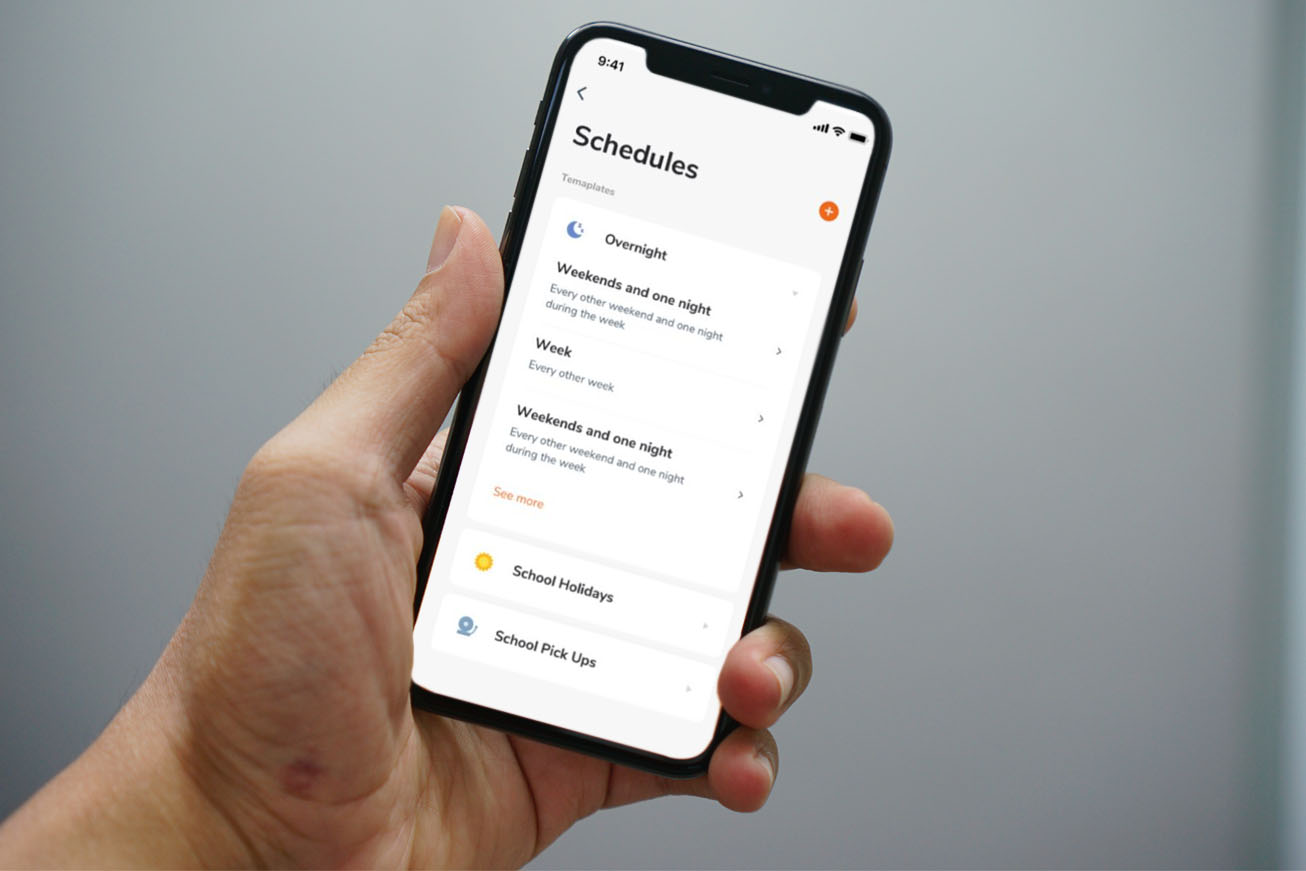10 tips for co-parenting in separate countries
I co-parent my two boys, 17 and 11, with my ex-husband who lives in Europe. Predominately they live with me as they attend school in the UK. Our informal arrangement is that I have the boys during term time and my ex is responsible for school holiday time. This isn’t a hard rule as there are the considerations of both our work schedules, the boy’s extracurricular school activities and camps along with my wish to have a holiday with them longer than just a weekend over the summer.
We’ve had this arrangement for five years now and feel it works exceptionally well. It allows flexibility around a framework that both the boys understand. Pre-Covid, my ex would visit on ad hoc weekends and take the boys somewhere in the UK, catch up with his family or just participate in the regular routine of Saturday sport etc. Often if my ex plans to visit, I take the opportunity to have a change of scene and travel or visit friends. He would stay in our home so the boys remain in their environment, and can look after the pets and be more relaxed cooking at home rather than staying in a hotel.
Whilst my setup may be unique, I know that there are many of you, like me, who co-parent your children from separate countries. I also know how challenging these sorts of set-ups can be, particularly in the wake of Covid-19. So I’ve written my top ten tips for co-parenting when one of you is based abroad. As always, should you need any more advice or help with your personal situation, book a free consultation.
Communication and shared-care arrangements:
Tip one: Communicate regularly
When you’re co-parenting from different countries, communication is the number one tool to help you connect with your children whichever country they are in. Regular contact is important, either by phone or video call so that you maintain your relationship with them and so you balance your parental responsibilities.
My children and ex aim to speak with each other daily. Whilst there is no set number, or amount of time you should speak to your children when you or their other parent is in another country, the more regular, the more balance they are receiving, you have the opportunity to hear the daily detail, not just the bigger events. You can ask the small questions… not just ‘how was your day?’
It’s also important to communicate with your co-parent, as you will be their primary source of information and vice versa when the children are with them. Obviously, as your children get older, you have more flexibility to communicate directly with them, but it’s important to be on the same page with your co-parent to limit confusion and conflicting parenting styles.
Tip two: Be productive when communicating
As they get older and wish to spend more time with their friends or have more extracurricular activities, you may find speaking to them increasingly difficult to schedule. My second tip is to be productive with the time you spend with them on the phone or on a video call. Get your children to do activities they would normally need to do, in order to use the time efficiently and to give the primary caregiver some time to relax.
Ie. my children’s dad will encourage them to practice their musical instruments, set up ‘mini concerts’ and will do reading and homework with them. He also coaxes them to help around the house and do their chores - (but be very clear with your ex that this is to foster responsibility, not a situation of ‘mum said you need to do ..XYZ’. This is really helpful so I’m not always the parent asking them to do the ‘boring’ but necessary chores. It’s essentially all the things my ex would normally do if we were living and co-parenting in the same country.
Tip three: Talk to your school
It’s important that you are both kept in the loop by the school. This means checking with the school that they have both your emails so they can communicate simultaneously with you about your children, their progress, any issues and upcoming events. It’s also helpful for them to know that you have separated, as this may have an impact on your children’s behaviour and mood at times, especially early on in the separation. If the school is communicating with both parents then you can relax knowing that you are both equally informed rather than constantly relaying messages or being accused of not passing information on.
Tip four: Be flexible with your shared care-arrangements
It’s not going to be easy, especially in lieu of Covid 19. You should be prepared for last-minute changes to flights, quarantine, sickness, social-distancing measures etc. The biggest difference when you are co-parenting from different countries is in terms of the intensity of time you will spend with your children. You may have them for weeks at a time without physical help from your co-parent. You will also have stretches where you then don’t see them for weeks. If you are pragmatic and flexible it will help with this enormously. For more information around shared-care arrangements read our blog here.
Tip five: Both be part of special moments
If it’s a special day or moment for your child, such as their birthday, try and ensure you are both a part of it. For example, have your co-parent on video call during the opening of presents or singing happy birthday, so that you can both be there for them, even if it’s for 10 minutes. For more tips about co-parenting on your children’s birthday - read our blog here.
Discipline, logistics and expenses:
Tip six: Don’t play good cop, bad cop
Make sure you both discipline your children equally so they don’t see one of you as ‘the good/fun parent’ and the other as the ‘bad/strict parent’. As previously mentioned, if you’re using phone and video calls with your children productively, you could supervise your child doing their homework, or doing their chores. If their grades at school have fallen, or they aren’t behaving, try speaking to them together so that they know you are on the same team and have the same expectation for behaviour. Reward systems work really well for my boys. Chores and responsibilities create privileges. I actually have a house point system at home for my youngest and he loves seeing them build up and planning what his treat is going to be. My ex can award him house points too and this allows them to deepen their communication in a very simple way.
Tip seven: It’s not possible for your children to be in two countries at once
If you’ve agreed that the children stay with one parent the majority of the time, and the other has them for holidays be prepared to feel guilty at different moments. Perhaps as a primary caregiver, you will feel guilty that your co-parent doesn’t have as much physical time with them. Or if you’re not the primary caregiver and instead only have the children for holidays, perhaps you will feel guilty about being the ‘fun parent’. The most important thing is to support each other, keep each other in the loop and make sure your children know they are loved by both parents, no matter who has more face-to-face time. Guilt and jealousy are natural, but shouldn’t get in the way of a healthy co-parenting relationship.
Tip eight: Agree flight logistics
It’s likely that if you’re co-parenting across countries, your children will fly to one parent at some point or another. As they get older, they may begin to do this on their own. It’s really important to encourage your children to message their other parent when they arrive, so they know they have arrived safely and are with you. Another option is to utilise GPS apps such as ‘find my’ so that you can keep tabs on your children’s whereabouts and safety without the need for them to message you directly. This obviously should be agreed upon between you both and is dependent on the children’s age and independence.
Tip nine: Keep a record of your expenses
It’s easier to share the financial burden of childcare when you’re splitting the time equally. However, when one of you has the child for longer, or if one of you is taking them on holiday - this can really add up. It’s important to make sure you are making a note of your expenses. The amicable co-parenting app is a great tool for this as it enables you to categorise and keep track of all your childcare expenses.
Tip ten: Presents
If you are buying presents separately, make sure you disclose what each other what your ideas are to prevent conflict, confusion or duplication. Buying presents shouldn’t be turned into a point-scoring competition and one of you might be in a totally different financial situation to the other, especially if one is part of the blended family with two incomes and the other is not.
If you want more tips about co-parenting during the holidays, read my guide on how to co-parent this Christmas.
Read More

Listen to how Harriet Hadfield and her ex have coped with co-parenting their son from different countries.

Stay organised and on the same page with your co-parent using our brand new app.

5 tips on how to improve communication between you and your ex.

Co-parenting advice
Speak to an amicable Coach for help transitioning from parents to co-parents.
-1.png)





Comments (0)